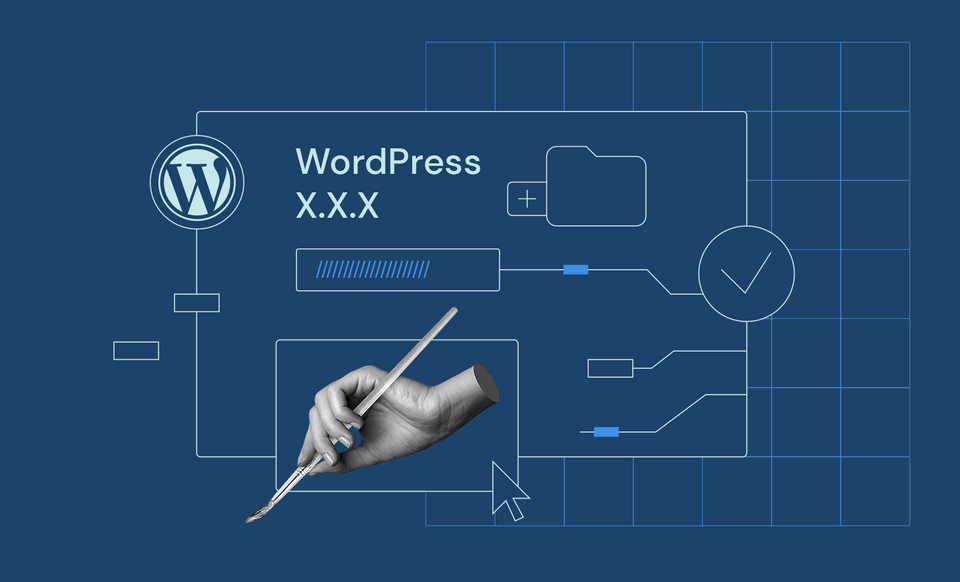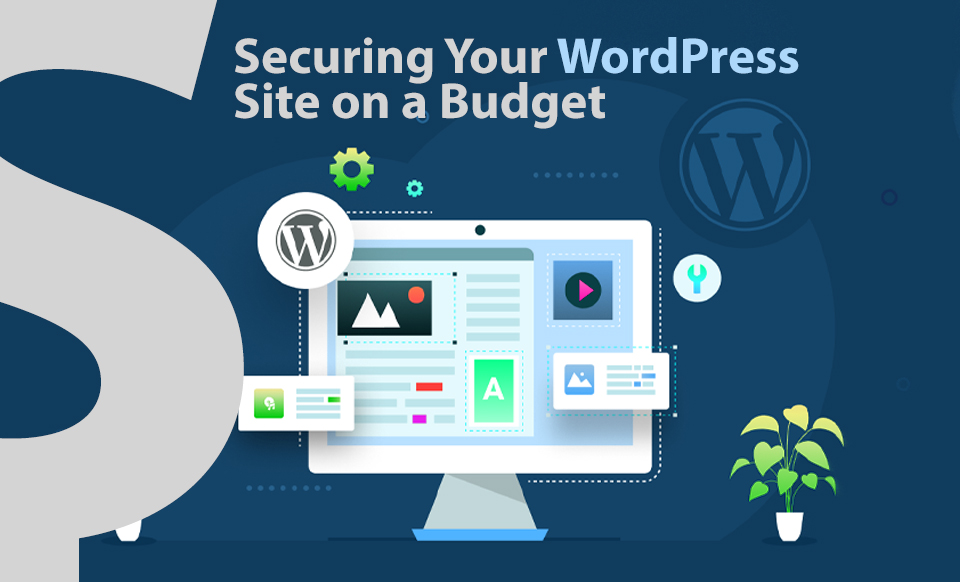In today’s era, a website is the first presentation of a company and a vital component of any business. A website is the quickest way for the user to access, allowing businesses to reach potential customers 24/7. In the era of websites, WordPress site is one of the most user-friendly CMS with streamlined features that are easily accessible and popular website-building platforms used by companies, start-ups, and individuals of all sizes. As it is an open-source CMS and vastly used, there is a greater risk of security breaches if businesses fail to adhere to WordPress security best practices. In this blog post, we will guide you through the practical and go to tips on how small businesses on a budget can secure their WordPress site.

Keeping WordPress Updated
As the heading suggests, keeping WordPress maintenance up to date is crucial. WordPress developers release regular patches to upgrade the security updates to address newly discovered vulnerabilities. Not updating WordPress gives the hackers a loophole to compromise the security as they are always on the search for websites that are not up to date. Therefore, it is recommended and should be in practice to update your WordPress website, plugins, and themes whenever an update is available. It is also highly recommended and advised to avoid using free plugins and Nulled themes as they are the backdoors for hackers. So, during WordPress maintenance, it should be taken care of if any such activity is observed.
A nulled theme is a hijacked or pirated theme modified and contains dangerous scripts meant to collect information or maliciously harm your WordPress website. Nulled software is enticing to use because it will give you access to premium features free of charge. Hoverer, as there is a famous saying, “When the deal is so good, think twice.”
Use an SSL certificate
An SSL, which stands for Secure Sockets Layer certificate, is essential to secure your website from hacking attempts. By encrypting data between server and browser, SSL certificates protect your website visitors from the risk of data loss, identity theft, and phishing attacks. Additionally, Google prioritizes secure websites in search results and helps us with SEO ranking. Therefore, using an SSL certificate not only protects your website but also helps in improved SEO results.
The SSL certificate you choose for your WordPress site will depend on your website’s type and needs.
Following are some SSL options you should choose and be particular during the web maintenance.
- If you have a limited budget and the website journey is simple and does not require holding a lot of vital data, you can go for a Domain Validation SSL certificate.
- When you are required to protect multiple subdomains, a Wildcard SSL certificate is the go-to solution.
WordPress Maintenance Checklist
Regular Backup of your website:
One of the key activities during WordPress Maintenance is regular backups to secure your website’s content from data loss and security breaches. You can restore your website from a recent backup if it gets hacked. You can install WordPress plugins that automatically back up your website files and database daily or weekly. Ensure you store backups in a secure location or somewhere on the cloud.
Disable File Editing:
PHP files and plugins from a WordPress admin area should be kept secure and not editable.
Change Your WordPress Admin URL:
Change WordPress’s default admin URL link for logging in to the CMS.
Monitor for Suspicious Activity:
Notifying you of unauthorized login attempts or changes to the core files of your website.
Hide Files like wp-config and htaccess.
Use Strong Passwords
Weak passwords are easy to crack, and doing so can give hackers access to your sensitive information. Therefore, use a strong password that includes lowercase and uppercase letters, numbers, and special characters. Additionally, limit the number of logins attempts to prevent brute-force attacks on your website. Consider using two-factor authentication and also include the password expiry mechanism.
Some of the best security plugins that you can install on your WordPress Site to enhance the website security:
- Sucuri Security
- Wordfence security
- Malware Security
- ithemes security pro
- Jetpack security
- Google Authenticator
- All in One WP Security &Firewall
Use Reliable WordPress Hosting
Choosing the right company for web hosting and WordPress maintenance services that offer secure WordPress hosting and safeguards from attacks is vital. Reliable hosting ensures your website is secured with regular security updates, firewalls, and other security measures. You can also choose hosting providers that offer free SSL certificates, automatic backups, and security plugins.
Regular Malware Scans
Regularly scan and clean your WordPress site for malware and viruses. Implement a security plugin or service that automatically checks your website for malicious code, suspicious files, and potential security threats. Malware can be injected into your site through vulnerabilities or compromised plugins, and timely detection and removal can prevent your website from being used for malicious purposes or damaging your reputation. Additionally, consider setting up a website firewall to block malicious traffic and enhance your website’s security.

Conclusion
Securing a WordPress site can be relatively inexpensive. However, at the same time, it is very crucial to keep proper track of your WordPress website maintenance. We provide budgeted packages for small businesses that can secure their WordPress site. Our team keeps track and manages timely WordPress updates has proper WordPress maintenance, and SOPs to protect your website from hacking attempts. Systechlogic team also recommends and guides the companies on the best practices, such as using strong passwords, two-factor authentication, and choosing reliable WordPress hosting. These tips can go a long way. Securing your WordPress site should be an ongoing process; timely updates and vigilant monitoring should be a standard part of your website maintenance.

